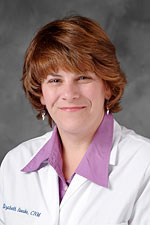In Episode 6 of Call the Midwife, Chummy delivers not twins, but triplets by candlelight and a bike headlamp without running water or enough blankets to wrap up the babies.
She beats me for toughest delivery, by any measure. When a woman comes to our labor and delivery without prenatal care, we reach for our portable ultrasound machine to assess due date and position and number of babies. The mother-to-be and I find out together about twins or triplets, but we almost always know before the birthing starts. That is the joy and added safety of modern technology. The Penicillin that treats Sister Monica Jones is still a staple of medicine today and a relatively modern miracle in human history. We have many more antibiotics that help us in modern medicine. The miracle of antibiotics is a poignant contrast to the lack of treatment for the dementia that Sister Monica Jones copes with in 1950s England and we still face today.
Episode 6 of Call the Midwife ends with the narrator saying she found “grace, faith and hope” in her career as a midwife in East London in the 1950s. I would add that joy and occasional sadness are also still part of being a nurse midwife today. Like the narrator, I would not trade it for any other career in the world.
RESOURCES
Henry Ford Health System – Women’s Health
American College of Nurse Midwives
Center for Disease Control and Prevention – Depression
Center fo Women’s Mental Health
 (Elizabeth) Tish Roeske (CNM, MS, BSN, RN) is a nurse-midwife and has been practicing in Metro Detroit as a certified nurse-midwife for 20 years. Roeske graduated from Wayne State University with a Bachelor’s Degree in Nursing Science and from the University of Illinois-Chicago with a Master’s Degree in Science for Nurse-Midwife.
(Elizabeth) Tish Roeske (CNM, MS, BSN, RN) is a nurse-midwife and has been practicing in Metro Detroit as a certified nurse-midwife for 20 years. Roeske graduated from Wayne State University with a Bachelor’s Degree in Nursing Science and from the University of Illinois-Chicago with a Master’s Degree in Science for Nurse-Midwife.
Read More About Tish | Read All Posts by Tish